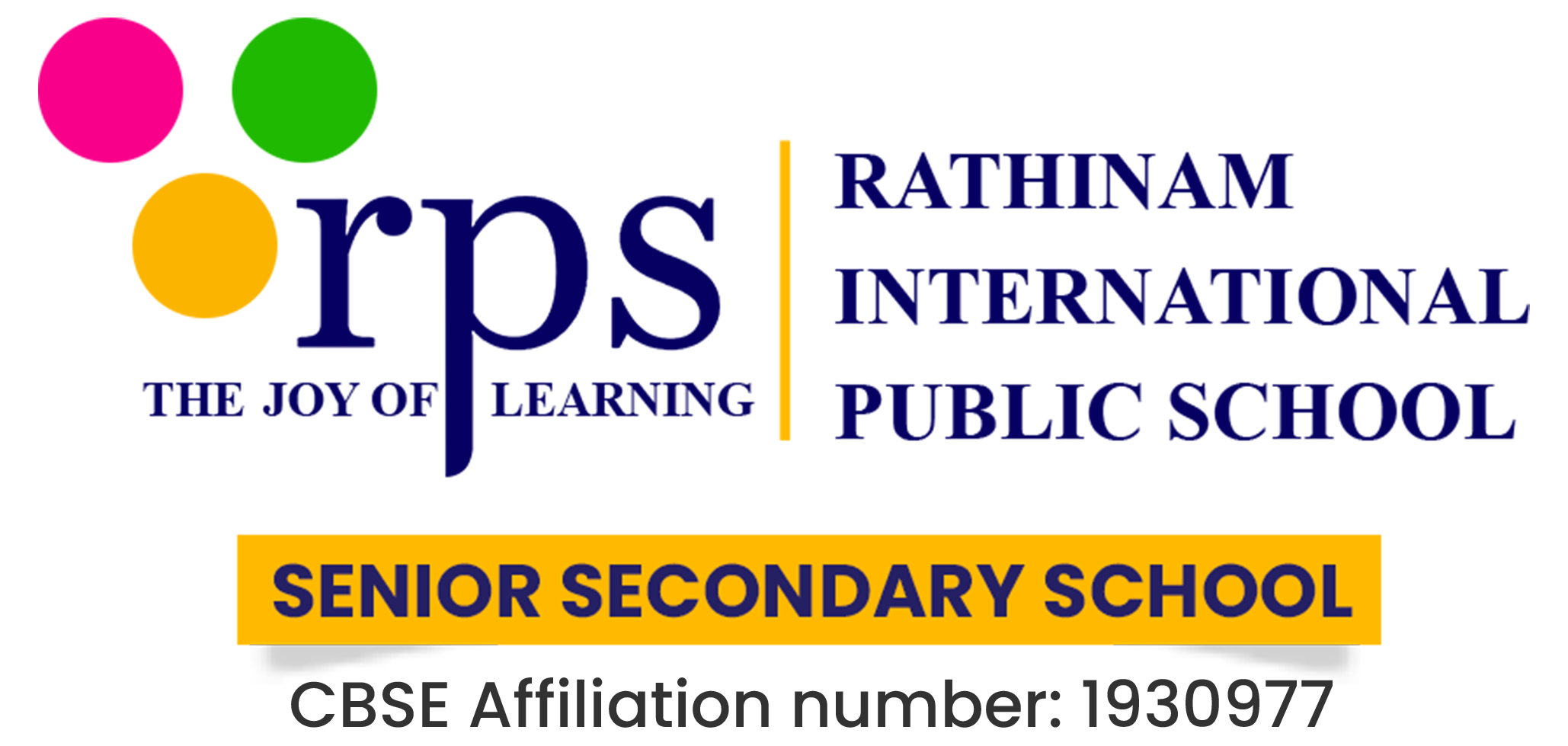
At Rathinam Public School, true education means more than academics, it’s about understanding, valuing and supporting every child’s growth. We go beyond traditional teaching to foster imagination, instill confidence and nurture each student’s inner brilliance. Our classrooms don’t limit learning, they open up a world where discovery and curiosity leads the way.
Here, we delve into how RPS redefines the learning environment by making each student the focal point of our teaching philosophy.
RPS Learning Spaces: Designed for Exploration and Growth
Spaces That Breathe Creativity
Our classrooms are warm, welcoming, and charged. Every room is deliberately designed to fuel imagination and excite attention. From the flexible seating arrangement to the brightly painted learning boards, everything invites children to be an engaged participant along with explorers.
Learning Beyond Lectures
We have moved beyond the antiquated one-size-fits-all model. Instead, RPS employs a student-centered model that brings learning to life through:
- Interactive storytelling
- Visual aids and manipulatives
- Role-play and group projects
- Real-world problem-solving activities
The RPS Way: Innovative Teaching, Inspired Learners
Inquiry-Based Learning
We do not give students answers at RPS, instead we instruct them on how to ask the suitable questions. Learning through questioning enables children to think for themselves and on their own. Educators bring everyday situations into play and encourage students to consider possibilities, study answers and present solutions. This creates a feeling of ownership of learning that is lifelong.
Peer Collaboration
Group work within RPS is about building together. The students learn to listen, cooperate, support and thrive as a team through peer collaboration in terms of goal-directed teaming. The activities provide basic life skills like cooperation, empathy, leadership and respectful communication.
Thematic Teaching
Instead of studying topics in segregation, RPS integrates ideas through thematic units. As an instance, a theme like “Environment” can be approached in Science, English and Art at the same time. This helps students make more sense and picture the bigger picture.
Emotional Intelligence in the Classroom
We believe that emotional well-being is a core component of academic success. RPS classrooms integrate regular workshops on emotional intelligence, mindfulness and self-knowledge. Students learn to recognize their emotions, feel for others and manage emotions positively, skills as valuable as academics.
5. Experiential Learning and Field Exposure
Learning at RPS is far more than the class. Through field trips, workshops, exhibits and live experience, students witness for themselves how the concepts they are taught at school get translated to the world. Such real-world experience makes their learning meaningful and enduring.
Teachers Who Guide, Not Instruct
At RPS, our facilitators are educators, mentors and co-learners. They build experiences. Each teacher is trained to listen, grow and respond to the needs of each child in the room. By constant reflection and innovative planning, they support each child to develop not just academically, but as a whole.
Personalized Attention for Every Learner
Understanding Individual Strengths
We believe that every child learns differently, and thus our teachers incorporate multiple intelligence-based approaches, be it visual, auditory, kinesthetic or linguistic. Our observation system has the ability to continually notice strengths and weakness areas, allowing us to provide early support and encouragement.
Feedback That Builds Confidence
RPS cultivates a culture of joyful learning. We are proponents of positive reinforcement. Rather than grading alone, we provide positive feedback that encourages students to learn without fear. This positive reinforcement produces confident learners who are not fearful of failure and more importantly, learn from failure.
A Culture of Joyful Learning
RPS is about cultivating a passion for learning. From celebratory weeks of exploration to interest groups and inter-house challenges, we enrich the process of learning with passion, meaning and discovery.
FAQs
1. How is RPS different from traditional schools?
- RPS is learner-oriented, experiential learning and not memorization. Our strategies for teaching are active learning, cooperative work, life applications, and emotional learning. It’s a balanced model that prepares students for school and life.
2. What kind of assessments are done at RPS?
- We incorporate both formative and summative assessment. Ongoing assessment by observation, projects, class discussions and peer feedback enable us to evaluate a student’s progress and adjust teaching strategies for them accordingly.
3. How does RPS cater to the student who learns at a different pace?
- Each child’s learning process is unique. We use resource teachers, mentor programs and academic support enhancers to encourage each child to achieve his or her best.
4. What is the parent’s role in the RPS model of learning?
- Parents are valued stakeholders at RPS. We conduct regular PTMs, activity-based workshops and open classes through which parents are introduced and informed about the child’s learning process. The communication is open and ongoing.
5. Is RPS overemphasizing academics?
- Not at all. RPS lays emphasis on all-round development. We provide equal emphasis to arts, sports, life skills, emotional intelligence and moral values. Our aim is to bring about responsible, happy and confident people who can excel in all aspects of life.
Conclusion
Learning in RPS is more than the transmission of curriculum. It’s an experience that can change lives. By revolutionizing traditional methods of education, we create a setting where children are taught and encouraged to learn, to lead and to live on purpose.
Each child is unique in Rathinam Public School. And each classroom is a destination where potential is unleashed, passions are ignited and futures are inspired.
Blog crafted by Ghowthami M, Content Developer,
Rankyouhigher, Coimbatore.



